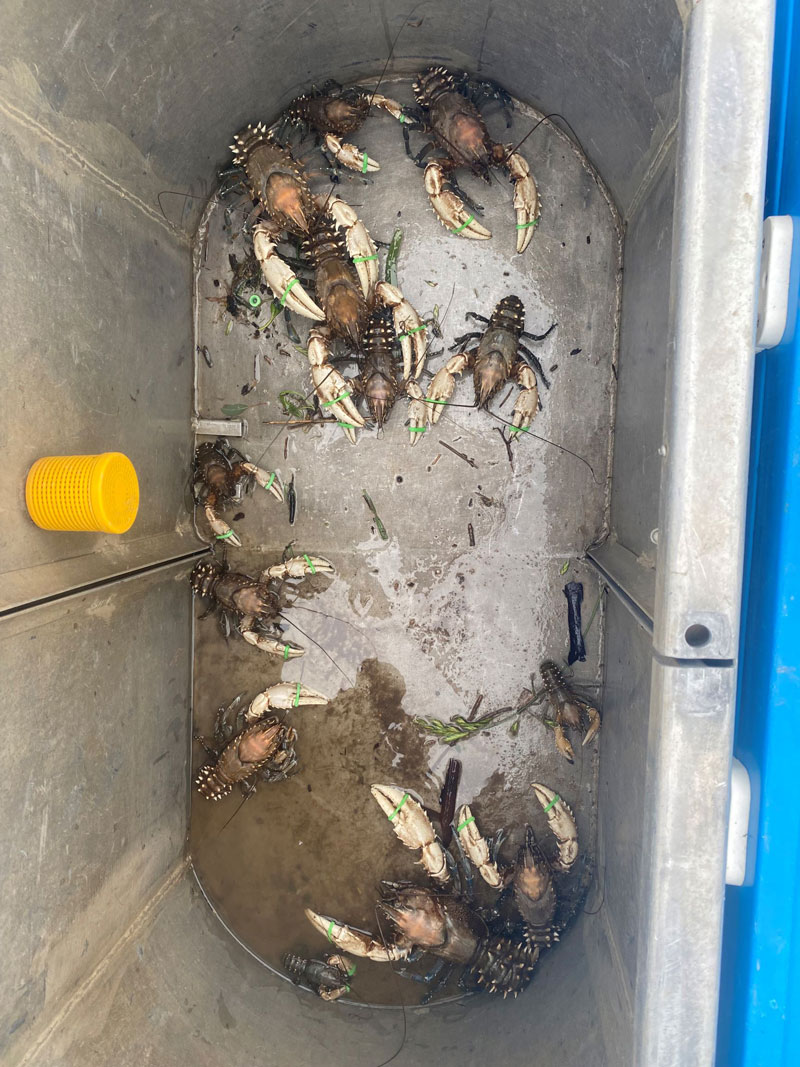
A rescue and relocation operation is underway by NSW Department of Primary Industries (DPI) Fisheries to save Murray Crayfish impacted by poor water quality following flooding along the Murray river.
Sean Sloan, Deputy Director General DPI Fisheries, said Fisheries has received reports of hundreds of Murray Crayfish, a nationally listed threatened species, leaving the water around Swan Hill and Echuca.
“Extensive rainfall across most of the Murray-Darling Basin has resulted in increased inundation of floodplain areas, causing poor water quality, including low dissolved oxygen levels through decaying grasses, leaves, crops and other organic matter being washed into the river systems,” Mr Sloan said.
“When dissolved oxygen drops to very low levels, this can cause ‘hypoxic blackwater’, which can be stressful for native species including Murray Crayfish, so they leave the water in high numbers.”
Mr Sloan said the rescued crayfish will be transported to Narrandera Fisheries Centre for safekeeping until conditions improve and they can be returned to the river.
“Environmental factors, competition from introduced fish and historical fishing pressure have led to widespread declines in populations of the Murray Crayfish, so we’re doing all we can to protect this vulnerable species and assist with its recovery,” Mr Sloan said.
“We also want to remind fishers that while Murray Crayfish may leave the water for a period of time during flooding and blackwater events, all NSW laws relating to taking of Murray Crayfish continue to apply.
“Fisheries Officers are actively patrolling the area to deter any illegal activity, so please do not interfere with crayfish or try to collect them, as some may return to the water when water quality improves.”
Mr Sloan said ‘hypoxic’ blackwater events can also have localised impacts on native fish species.
“We’re warning communities within the Barwon-Darling, Murray, Murrumbidgee, Edward-Wakool and Lachlan catchments to be on alert for fish deaths in the coming days and weeks as significant flood events continue across the state,” Mr Sloan said.
“The flooding will provide a significant boost for native fish communities in coming years, however it brings with it some short-term risks as native fish must negotiate poor water quality over coming weeks.
“Fishers and community members are encouraged to report any fish deaths or observations through the Fishers Watch phoneline on 1800 043 536.
“We continue to work closely with partner agencies to manage and monitor water quality and creek conditions.”








